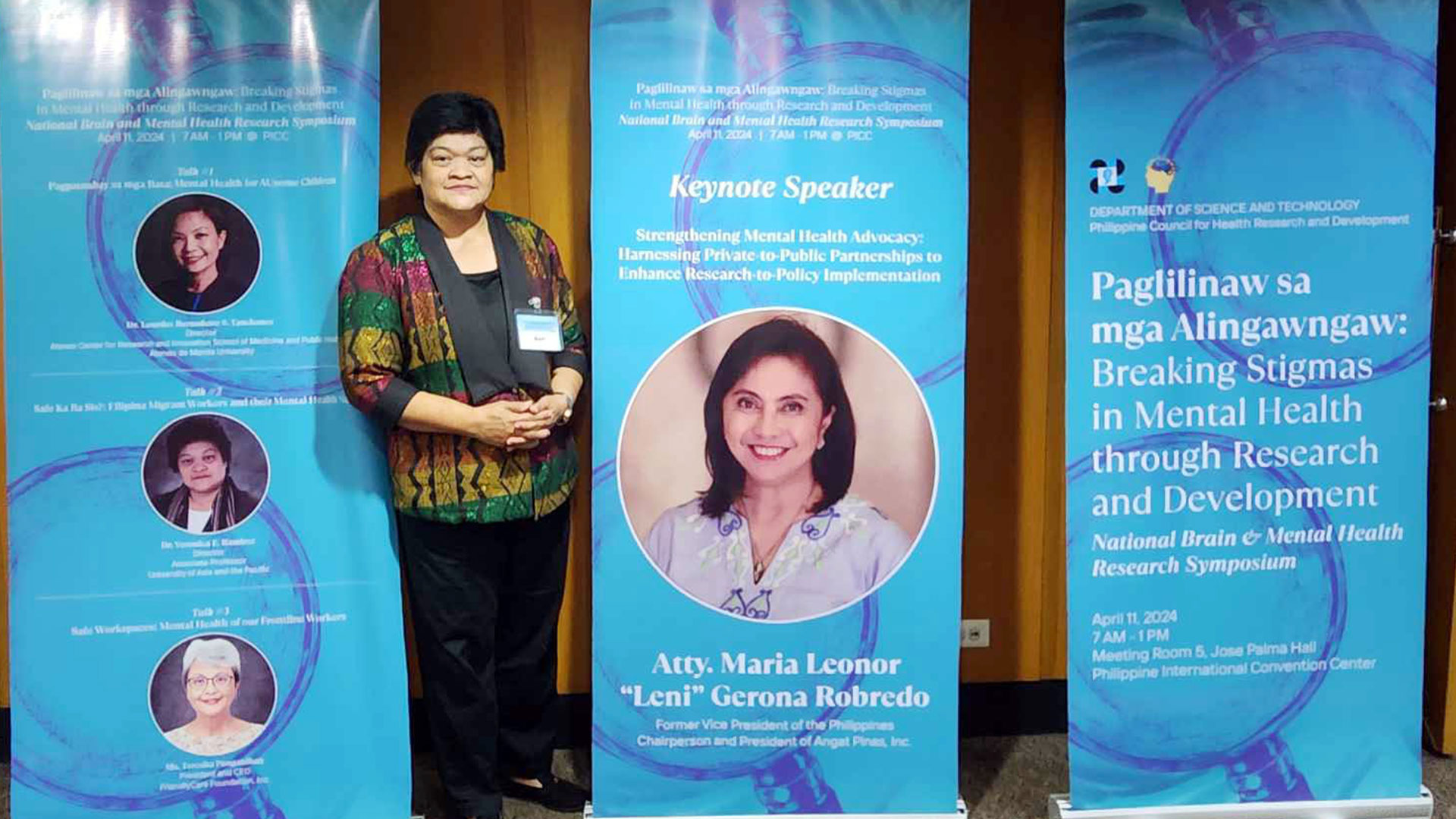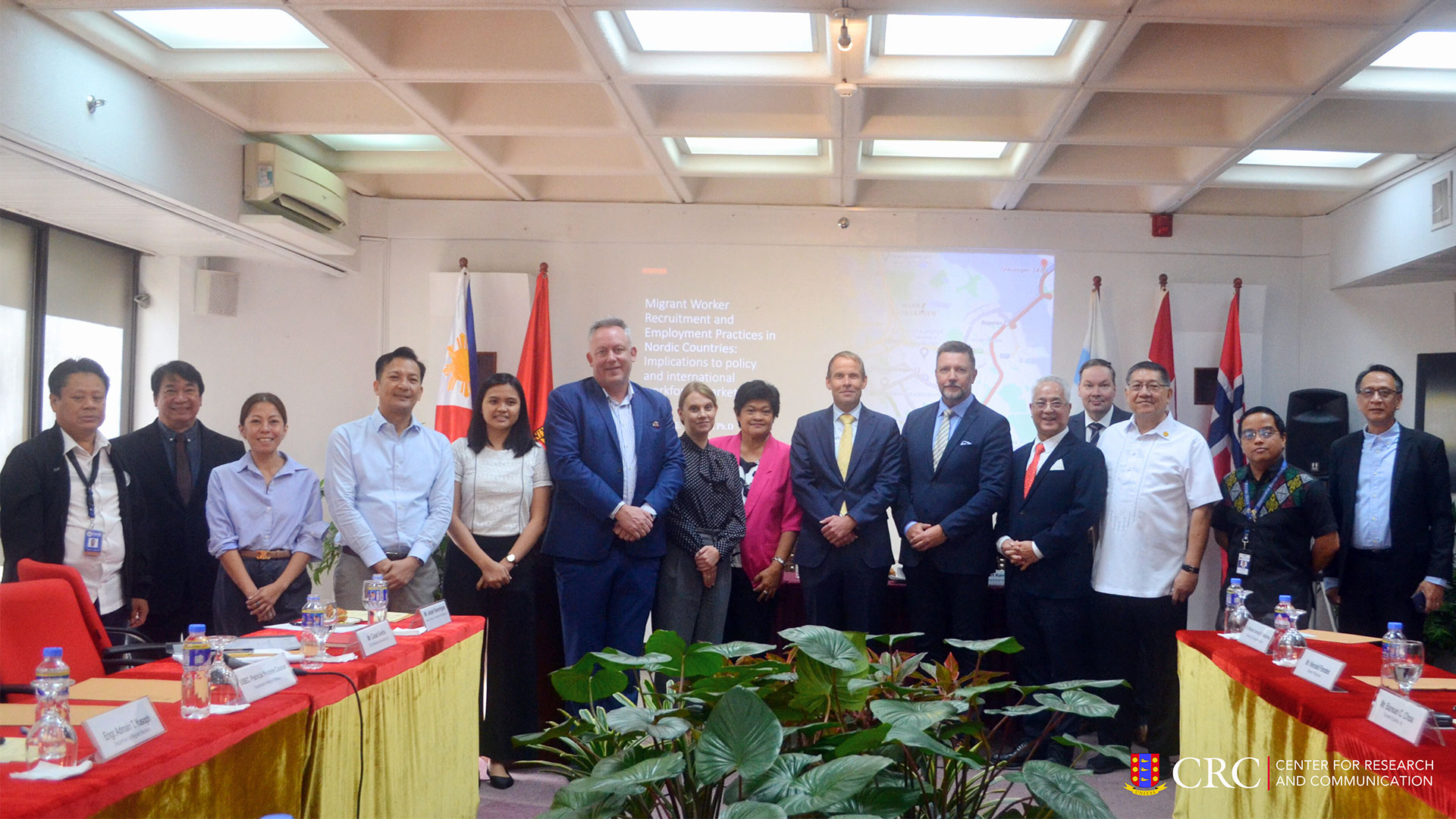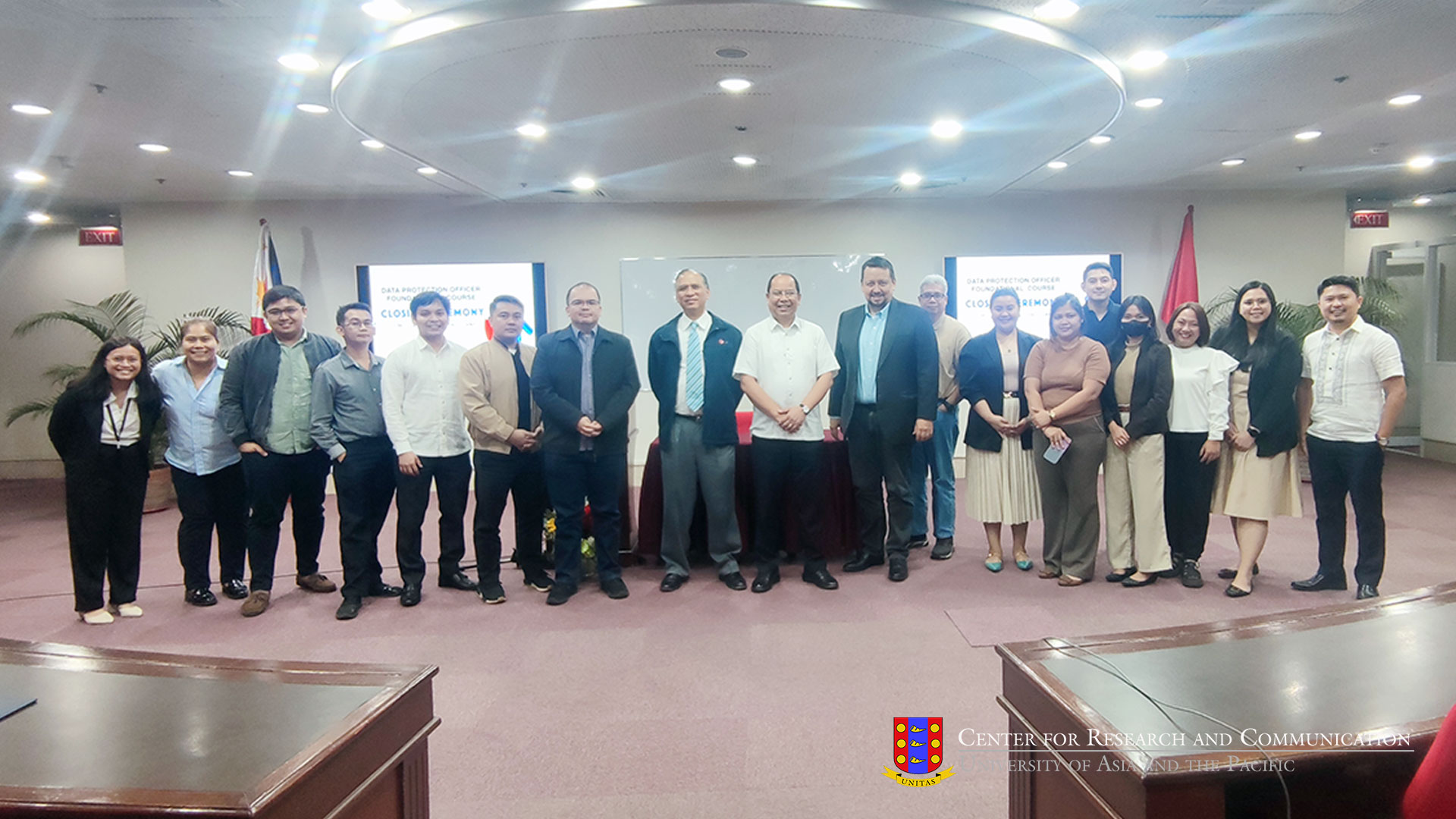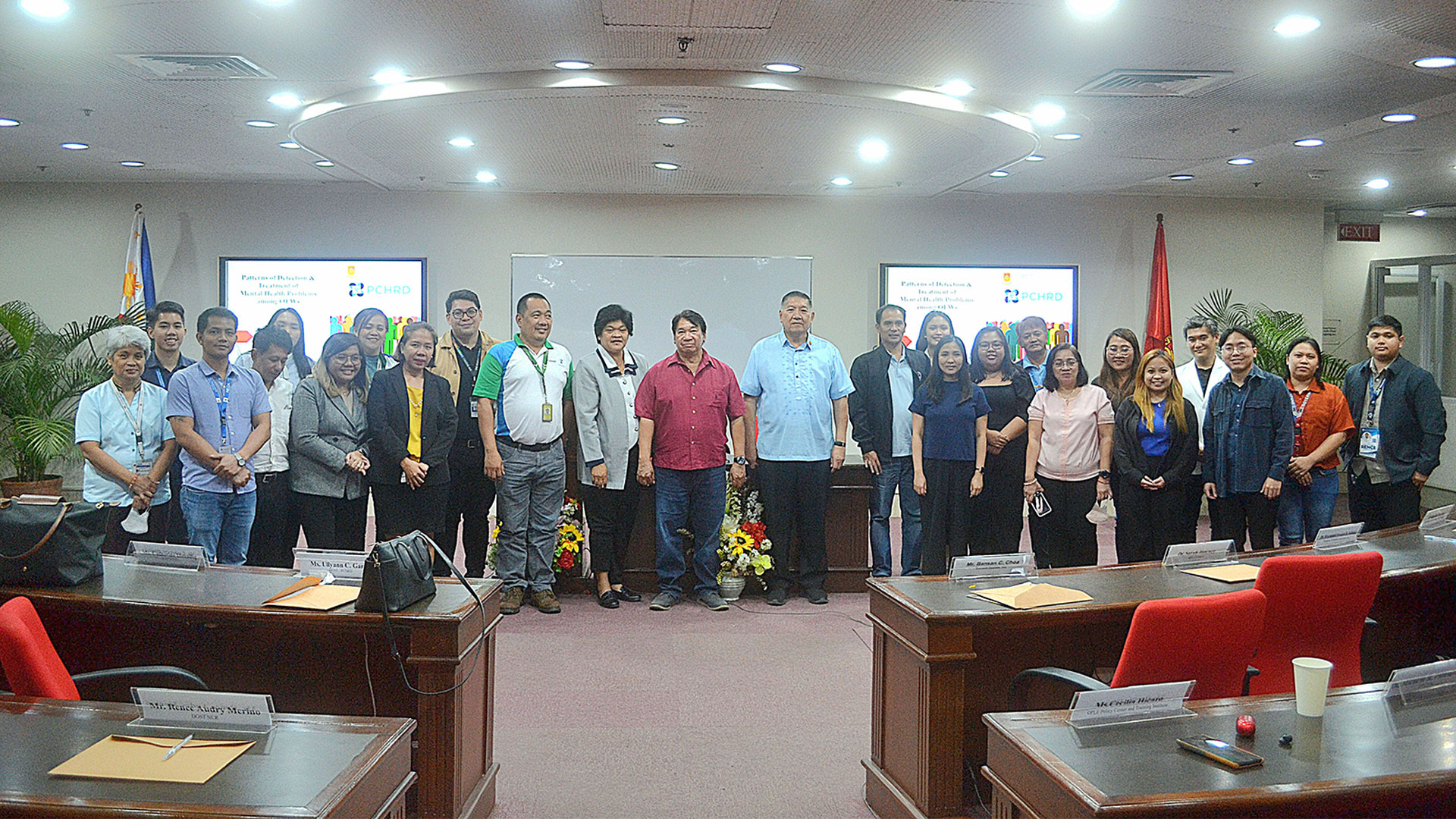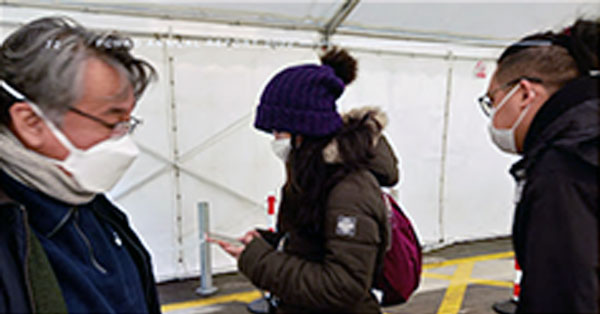CRC in the Digital Sector — When eminent Filipino economist Bernardo M. Villegas talks about the future of the Philippine economy, he often points out that Filipino talent, particularly the talent in the Media and Entertainment Sector, are among the Philippines’ greatest assets. But drumming up business for the country’s creatives requires long term investments in a different sector – information technology and telecommunications.
Dr. Villegas, who serves as director of research for the Center for Research and Communication, was a surprise guest at the open forum for Session 5 of the series of economic fora on Opening the Economy for Recovery last July 9, 2021, linked that session’s subject of “Arts, Entertainment, and Advertising to Steer Philippine Economy” to that of the previous session, which focused on telecommunications.
“In order to really get the Ph into the fourth industrial revolution,” Dr. Villegas says, “our greatest assets are our talents. We’re among the best singers, the best designers, name it. You know, we missed the boat with industrial revolution 1.0 which was mechanization we missed the boat with industrial revolution 2.0 which was the electrific revolution we’re still struggling with our energy industry. we missed the boat in the elecgronics, 3.0 revolution. We can actually be among the frontrunners in the industrial revolution 4.0 because we have the human resources.”
“But we don’t have the long term capital,” he adds, emphasizing that bringing Filipino creatives into the 4th Industrial Revolution requires connecting them to the world through digital platforms.
“We have to open up the telecom industry,” he says, “so that internet connections will improve because internet connections have a lot to do with also opening up media. That’s a very very important issue.”
Repeating a point he had made several times throughout the series, he notes that “these sectors – telecom, media, and information technology – are merging into one super-industry.”
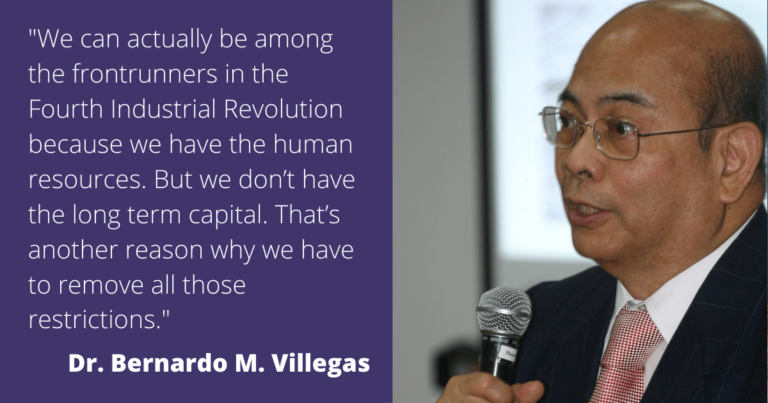
Drumming up business for the country’s creatives requires long term investments in information technology and telecommunications, said eminent Filipino economist Bernardo M. Villegas last July 9, 2021 at the “Economic Forum on Opening the Economy for Recovery: Arts, Entertainment, and Advertising to Steer Philippine Economy.”
Blueprint.ph Research Director Ms. Ella Kristina D. Coronel, who was one of two other speakers at the open forum, also expressed this concern: “the only way to be able to resolve the digital readiness gap is to address the infrastructure.”
NOT OWNERSHIP, BUT PLATFORMS
One of the emerging themes of the forum was the fact that constitutional reforms to bring in new Foreign Direct Investments did not seem likely to impact the Philippines’ media industry in terms of foreign ownership of media, but rather in terms of giving Philippine creatives more access to the platforms which would allow them to reach international audiences and take on international projects.
“On media, I frankly don’t see a lot of foreign interest in buying local broadcasting or radio or even newspapers” noted Mr. John Forbes, Senior Advisor to the American Chamber of Commerce of the Philippines and another speaker at the open forum. “But it’d be interesting to see whether it would be different… I think your local press will continue as it is, maybe some of them want to sell maybe someone will want to buy.”
Instead, suggested Ms. Coronel, the impact of Foreign Direct Investments in the Philippines would likely come “not only [in terms of] ownership of media but also [in terms of] providing digital platforms. [Facebook and YouTube have] the biggest penetration, but the country is not making a cent out of it. If we open up, new players could come in or YouTube could put something here, Facebook could come put something here… at least we could get a piece of the pie.”
AN ARGUMENT FOR REFORMS…
Whether new capital is needed in the form of direct investments in the media and entertainment industry, or in terms of platforms provided by new investments in information technology and telecommunications, emphasizes Dr. Villegas, the future growth of the media and entertainment sector is still a strong argument for constitutional reforms opening up the economy. “You cannot have better internet connections,” he says, “if you don’t also remove the restrictions against investment in the telecom industry.”
“We need a lot of capital for the hardware, for the infrastructure. And that’s not available locally.”
Dr. Villegas and Mr. Forbes both noted that relaxing these restrictions is important so that foreign businesses can bring in new capital and its accompanying technology. “When foreigners discover that they can only own forty or thirty percent here,” Dr. Villegas argues, “they won’t risk their long term capital. Which comes always with technology.”
Dr. Villegas further noted that because the COVID-19 pandemic has stretched local resources thin, saying “one very important reason why we have to accelerate this process of opening up foreign capital is the pandemic. Long term capital has significantly dried up. Our government right now is getting overborrowed and [banks have just] reported one of their highest rates of nonperforming loans.”
A piece of legislation, Resolution of Both Houses 2 (RBH 2) is currently pending in the Philippine legislature, proposing that ownership restrictions in key economic industries, enshrined in the Philippines’ 1987 constitution, be relaxed. If passed, the resolution would allow future Philippine legislatures to pass laws which would allow foreign individuals and corporations to own a controlling stake in Philippine companies within these industries – including telecoms and media.
…AND AN ARGUMENT FOR REGULATION
The need for these foreign direct investments, however, doesn’t mean that the Philippines should just let foreign companies in unregulated, because it’s important to protect the interests of Filipino creatives, as well as the interests of the nation itself.
The welfare of Filipino creatives was something Ms. Coronel emphasized, saying “Regulation for investors is very important because otherwise it’s just going to be like scraping , and it cannot be like that. There has to be some sort of social protection, [and] there has to be some sort of standard talent fees for those who are independent artists.”
In response to a question about the possible use of media ownership as a way of bringing in foreign propaganda, Dr. Villegas cites the example of “laws can regulate content of Amazon and Facebook [like] they’re doing in Asustralia… [Regulation] doesn’t have to be addressed to ownership but it can be addressed to things like content, for example. That’s where we have to be creative in our legislative work – making sure that those situations do not happen. There are ways to prevent those types of practices.”
“So we can do the same thing locally,” Dr. Villegas concludes. “So we need very good people in congress to be vigilant about the way some of these foreign companies can subvert certain national interests”
“Opening the Economy for Recovery: Arts, Entertainment, and Advertising to Steer Philippine Economy” was the fifth in the series of economic for a led by DILG Philippines and co-organized by the Center for Research and Communication, Konrad-Adenauer-Stiftung Philippines Office , Censei, the DAP Graduate School of Public and Development Management, PSPA (Philippine Society for Public Administration), and Blueprint.PH.• | CRC Staff Writer ||
———————————————————–
The Center for Research Communication is the research and consultancy link to Philippine business opportunities, uniquely poised to help you with technical and financing evaluation, demand evaluation, partnership development, project impact evaluation, and team upskilling and learning. To find out more about CRC, send an email to [email protected], or follow us on LinkedIN at linkedin.com/company/centerforresearchandcommunication. You can also find us on Facebook at facebook.com/centerforresearchandcommunication.
#Investments #ForeignDirectInvestments #FDIs #DigitalEconomy #PhilippineDigitalEconomy #Telecommunications #PhilippineTelecommunications #PhilippineTelecommunicationsSector #coreeconfora #economicrecovery #PhilippineEconomy #businessopportunities #consultancy

